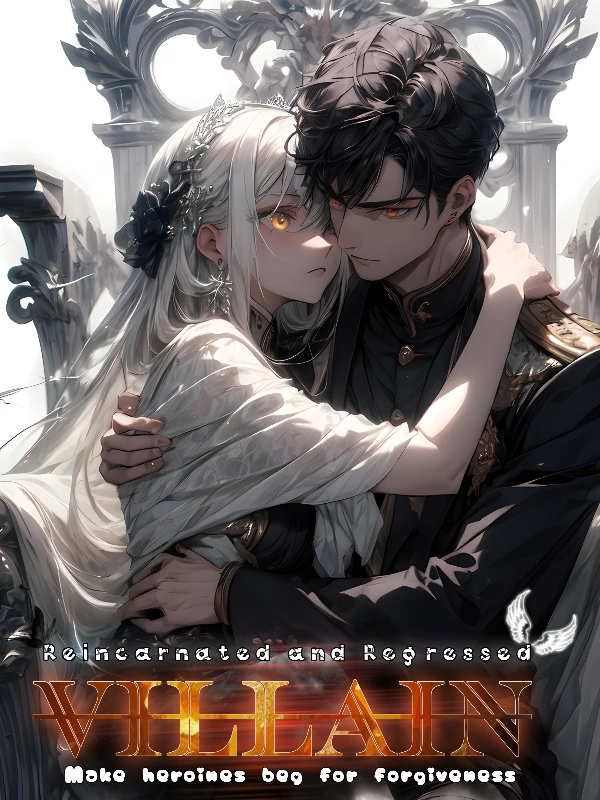Chapter 57: The Eve of Decisive Battle (1)
Translated by Vine | Proofread by Lust
For the latest updates, visit: ProNovels.com
Join our Discord for release updates: https://discord.gg/Eh2ayfR4FB
< German Civil War – The Eve of Decisive Battle (1) >
October 27, 1939
Central Germany, 9th Military District, Kassel, Frankfurt, New Government Headquarters
Nearly two months had passed since Operation Widerstand, the outbreak of the civil war. The New Government was now functioning smoothly as Germany’s new governing body.
After ousting the monarchist Military Junta, we appointed prominent figures from various factions of the Weimar Republic era to key positions within the emergency wartime cabinet, laying the foundation for the future democratic government.
We appointed Konrad Adenauer, representing the Catholic conservative liberal faction of the Rhineland, as Finance Minister to appease businesses and conservatives.
We also appointed Kurt Schumacher, representing the Social Democratic Party and advocating for workers’ rights, as Labor Minister to balance and complement Adenauer and the conservatives.
Finally, we appointed Theodor Heuss, editor-in-chief and representative of the centrist faction and free press, as Minister of Propaganda to oversee public opinion.
The wartime cabinet, a mix of the strongly monarchist military, liberals, and even socialists, was able to function harmoniously due to the unique circumstances of our united opposition against the Nazis and the framework of a constitutional monarchy.
The military situation had also stabilized. While the Italian army had nearly broken through the Austrian border defenses, Major General Eglseer had fully defected to the New Government, and with our deployment of Free Corps reinforcements, we had managed to hold the line.
Meanwhile, Hitler, purging the military and demanding an offensive, had been thwarted by the unexpected surrender of the entire 8th Army, orchestrated by the opportunistic Manstein, effectively paralyzing the Nazi Wehrmacht.
We seized this opportunity to declare the revival of the Reichswehr (German national defense force) and appointed Colonel General Wilhelm Ritter von Leeb as Commander-in-Chief of the Army and, though somewhat begrudgingly, the capable Erich von Manstein as Chief of the General Staff.
“Welcome back from your trip to the United States, Your Highness.”
“Ah, it felt more like home than here after such a long time away. Hahaha!”
I greeted Prince Louis Ferdinand Viktor Eduard Adalbert Michael Hubertus, the Crown Prince, whose name was characteristically long for royalty.
He was originally the second son but had become Crown Prince after his older brother, Wilhelm, was stripped of his succession rights by Wilhelm II for marrying a commoner.
“I never thought my experiences from my carefree days would be so helpful.”
Crown Prince Louis Ferdinand had lived in the United States until his older brother’s morganatic marriage and had developed close relationships with Henry Ford and the current president, Franklin Delano Roosevelt.
Following our successful negotiations with Britain, we dispatched the Crown Prince and Foreign Minister Weizsäcker to the United States for lobbying efforts, which had yielded significant results.
Due to the Neutrality Acts, the United States was prohibited from providing any form of aid or selling weapons to nations engaged in civil war.
Therefore, we negotiated a deal where the US would sell oil and trucks, ostensibly for civilian use, to the Netherlands, and we would then purchase them from the Netherlands.
The Netherlands, initially displeased by the monarchist Military Junta’s coup and the subsequent pressure from Britain and France, seemed quite satisfied after we resolved the issue internally and issued a formal apology.
They agreed to cooperate with the agreement in exchange for minor tariff benefits, and under the leadership of Roosevelt, who already harbored strong antipathy towards Hitler, the United States officially recognized the New Government as the legitimate government of Germany.
“You’ve done a great service, Your Highness.”
“Haha, you’re giving me too much credit.”
We exchanged smiles. While I still strongly disliked Wilhelm III, I rather liked Crown Prince Louis Ferdinand.
The Crown Prince, four years my senior, was open-minded and adaptable, influenced by his time in America.
Securing a supply of oil, addressing Germany’s logistical shortcomings, and establishing a cooperative relationship with the United States were significant achievements.
This was especially true considering the future global dominance of the United States.
“Your Highness’s support was also instrumental in passing the Labor Ministry’s initiative regarding female workers.”
Enjoying the translation? Stay updated with the latest chapters at ProNovels.com.
“I thought that policy was too outdated, State Secretary.”
German culture was inherently masculine and militaristic, but Hitler and the Nazi Party, with their obsession with machismo, had fostered an environment where a woman’s place was seen as solely in the home, raising children.
However, with a significant portion of Germany’s young men already conscripted for the invasion of Poland and with the ongoing influx of volunteers into the Free Corps, we risked a decline in industrial productivity, similar to Germany in the late stages of the Great War.
Therefore, the first initiative Kurt Schumacher, the new Labor Minister, and I undertook was to encourage women to join the workforce.
As expected, we faced resistance from conservatives, the military, and even Wilhelm III. However, we managed to pass the initiative with my report on the manpower shortage in the Ruhr and the support of the American-influenced Crown Prince.
It was absurd that during World War II, while other nations employed women in factories, Germany alone relied on forced labor from Jews, concentration camp inmates, and occupied populations.
While there were still skilled workers in the factories, they could focus on more complex tasks, while women could be gradually trained for other roles, leading to greater productivity in the long run.
Women, motivated to produce equipment for their husbands and sons fighting at the front, were undoubtedly a better option than apathetic, malnourished forced laborers prone to strikes and resistance.
Whether World War II would occur in this timeline remained uncertain.
While we had prevented the Nazis from starting World War II and Germany’s subsequent ruin as a defeated nation, we were already at war with Italy, and the Second Sino-Japanese War was raging in Asia.
Poland’s movements were also suspicious, and France was undoubtedly harboring resentment towards us. The situation could escalate into another world war at any moment, and it would be negligent to assume peace in these turbulent times.
As we were discussing these matters, there was a knock, and Claudia entered.
“Your Highness, State Secretary. I apologize for interrupting, but time is short before your next appointment.”
“Ah, how time flies. Then I’ll take my leave, State Secretary. Hmm, are you unable to attend this evening’s dinner invitation?”
“My apologies, Your Highness. I’m rather busy.”
That damned Wilhelm III constantly invited me to dinners under the pretext of fostering a close relationship between me and the Imperial Family. He needed to show some concern for my stomach’s well-being.
“Hahaha, I understand. I’ll convey your regrets. Farewell, State Secretary, adjutant.”
The Crown Prince smiled knowingly, accepted our farewells, and left.
“Ah, my apologies. Time flies when I’m talking with the Crown Prince, unlike with the Emperor.”
“Chuckle, here. You should read this on your way.”
Claudia chuckled at my remark and handed me a speech manuscript.
The New Government placed great emphasis on propaganda, usually overseen by Propaganda Minister Theodor Heuss. However, I typically delivered the speeches aimed at countering Goebbels, due to stylistic considerations.
Since becoming State Secretary, I had been so busy that writing speeches had become almost entirely her responsibility.
Fortunately, perhaps because she understood my thinking so well, I was almost always satisfied with the speeches she wrote. They usually only required minor revisions.
I glanced over the manuscript as I walked and then looked at her.
“Are you alright, Claudia?”
“Yes? What do you mean?”
I felt rather guilty towards her. We were engaged, but at 28 and 26 respectively, we weren’t exactly young by this era’s standards, yet I had no time for romance due to work.
Moreover…
“I mean, are you alright with being just my adjutant?”
I had originally wanted to appoint her as State Secretary of Propaganda, but I had faced such strong opposition that I had to give up immediately. She also had a mentor-student-like relationship with Minister Heuss.
While I had gained fame as the spokesperson through the New Government broadcasts, she had also earned public recognition as a skilled journalist, conducting interviews with empathy and professionalism, particularly with those who had suffered in concentration camps. She was more than capable.
However, even my appointment as State Secretary was considered premature by many, despite my achievements, and there was considerable resistance to appointing her as my adjutant.
I had eventually managed to secure the appointment by arguing that it would also serve to promote the Labor Ministry’s initiative on female workforce participation, with the support of the Crown Prince and Schumacher.
It was still unimaginable in Germany for a woman, especially one under 30, to hold such a high position. I couldn’t help but feel a pang of regret, wondering what her life would have been like if she had been born in the modern era, or even just a decade later.
It was a shame, not just because of my personal feelings for her, but because she was far too talented to be merely an adjutant.
Claudia, who had been observing my expression, gently tugged at my cheek.
“Ouch.”
“Focus on your work, State Secretary. You have to deliver that speech in 30 minutes.”
“Ugh, my apologies, adjutant.”
As I returned my attention to the manuscript, I heard her whisper.
“I’m not helping you because I want a promotion. For now, I’m content with the recognition of the man I love.”
Damn it. My carefully crafted speech vanished from my mind in an instant.
I tried to kiss my mischievous adjutant, who had so effectively distracted me despite telling me to focus on work, in the hallway of the government headquarters, only to be scolded again.
–
October 30, 1939
Central Poland, Warsaw, Capital of Poland
The German New Government had dispatched Foreign Minister Ernst von Weizsäcker to Poland, proposing a renewal of the German-Polish Non-Aggression Pact.
President Ignacy Mościcki, Prime Minister Felicjan Sławoj Składkowski, and Marshal Edward Rydz-Śmigły, Minister of National Defence, were discussing the proposal.
“Has this self-proclaimed New Government gained the upper hand in the German Civil War?”
Prime Minister Składkowski tilted his head at Marshal Rydz-Śmigły’s question.
“Would that devil Hitler fall so easily?”
The sudden rise of Hitler, the politician who had taken Germany by storm, had left a lasting impression on them all.
While the New Government’s propaganda campaign had gained international attention, they weren’t privy to the details of the civil war and couldn’t make an accurate assessment.
“So, what are your thoughts on the German New Government’s proposal?”
Marshal Rydz-Śmigły answered President Mościcki’s question without hesitation.
“There’s no reason to accept it.”
“You intend to refuse, Marshal?”
While it was unusual for a Prime Minister to address a Marshal in such a manner, Rydz-Śmigły, as Inspector General of the Armed Forces, was effectively the ruler of Poland.
Under his rule, often described as a “dictatorship without a dictator,” both the President and the Prime Minister were mere figureheads.
“Those Germans will continue coveting Gdańsk (the Polish name for Danzig) and the Polish Corridor. They are simply desperate now because they are under attack from Italy. Why should we sign a pact with them while they are weakening themselves through civil war?”
“However, we also have another powerful enemy: the Soviet Union. If they win the civil war, a non-aggression pact with them would be beneficial for Poland’s security.”
Rydz-Śmigły scoffed at Prime Minister Składkowski’s words.
“We thought the same when we signed the non-aggression pact with Hitler. But we all know how worthless that treaty turned out to be.”
Składkowski fell silent.
Unlike the Weimar Republic, which had been consistently hostile towards Poland, Hitler, shortly after becoming Chancellor, had lifted the economic sanctions crippling the Polish economy and had signed a non-aggression pact, seemingly pursuing appeasement.
However, even Hitler had eventually demanded Danzig and extraterritorial rights for a railway through the Polish Corridor, threatening Polish sovereignty, and had ultimately issued his infamous ultimatum: Danzig or war.
“Treaties are nothing more than temporary measures that can be broken at any time. As long as we hold Gdańsk, lasting peace with them is impossible.”
“Then what do you intend to do?”
Marshal Rydz-Śmigły appeared to consider President Mościcki’s question.
“In the end, military strength is everything. If we crush those Germans now, while they are weakened by civil war and seize their territory, they won’t dare provoke us again.”
Marshal Rydz-Śmigły believed that the Polish army, a formidable force, could easily handle the Germans, weakened by the civil war.
While Italy had made a fool of itself initially, it was still one of the three major powers and would sufficiently divert German forces by attacking through Austria.
“If it weren’t for those Soviets…”
Poland had been eager to attack Germany during the civil war and reclaim East Prussia and all of Silesia, territories that had once belonged to Poland. However, the massive Soviet military buildup in the west gave them pause.
While the Soviet troop deployments weren’t directly on the Polish border, the intelligence reports of Soviet forces redeploying from the Russian Far East, where they had been facing Japan, to the west were enough to unnerve Poland.
Their reluctance to intervene in the German Civil War was partly due to their desire to see Germany further weakened, and partly due to their wariness of the Soviet Union’s movements.
“Finland proposed an anti-Soviet alliance with the Baltic states, claiming that Soviet troops were being deployed along their border.”
Unlike the original timeline, with the Molotov-Ribbentrop Pact not signed, Stalin, having set aside Poland, which was under Britain and France’s protection, had turned his attention to the more vulnerable and tempting Finland.
Finland, alarmed by the Soviet troop deployments along its border, had been eager to form an alliance with Poland, a traditional enemy of the Soviet Union and a force they believed could stand up to them. However…
“How much help would that weak Finland be? Why antagonize the Soviets with such a tempting cake in front of us?”
The greedy Rydz-Śmigły, instead of allying with Finland against the Soviet Union, planned to attack Germany, weakened by civil war and possessing desirable territories, while Finland was being attacked by the Soviets.
Since Germany was already under attack from Italy, he believed they would have no choice but to accept a ceasefire after Poland occupied East Prussia and Silesia.
Even if things went wrong, Britain and France had guaranteed Poland’s independence, and France, currently harboring resentment towards Germany, might even join forces with Poland and Italy to seize even more territory, not just East Prussia and Silesia.
With such achievements, even the troublesome szlachta (Polish nobility) would be silenced, and he might even become a greater hero than Piłsudski, the man who had secured Poland’s independence.
“I hope those Soviets attack Finland soon. Then we can deal with those arrogant Germans…”
< German Civil War – The Eve of Decisive Battle (1) > End
ⓒ Carcassonne
For the latest updates, visit ProNovels.com. Join our Discord for release updates: https://discord.gg/Eh2ayfR4FB.



















